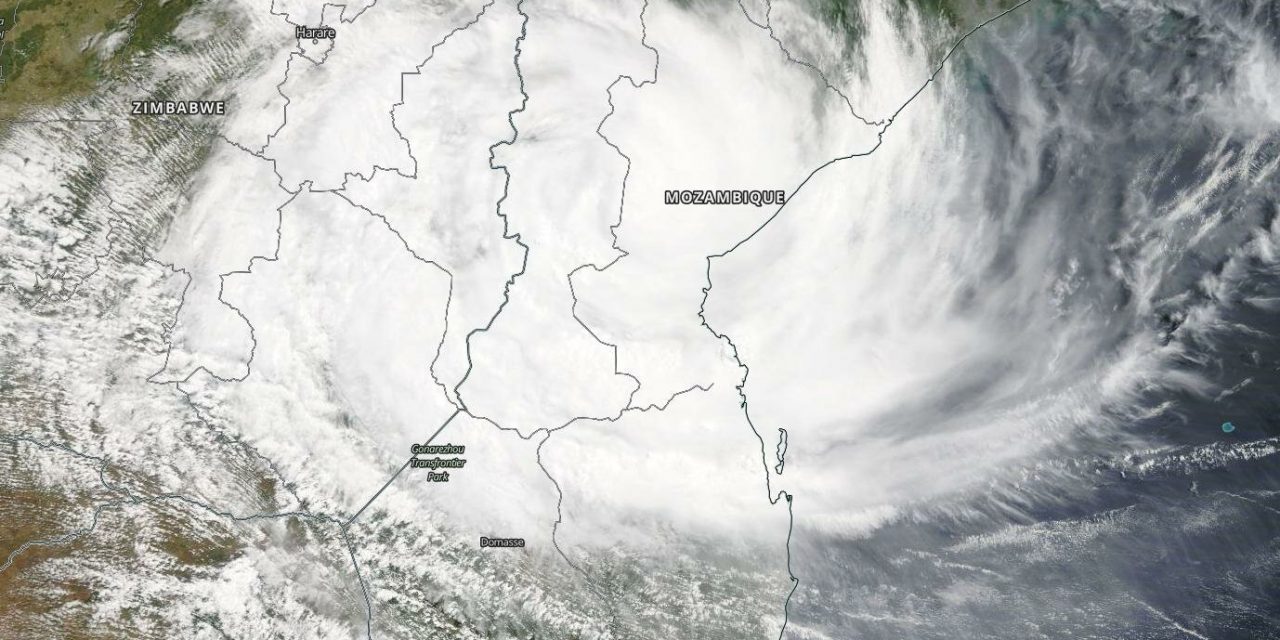When news initially broke of an impending cyclone it seemed improbable that it was going to cause the kind of damage it eventually did. Cyclone Idai made landfall in Mozambique on Thursday leaving a trail of horrendous damage. As we got to noon time on Saturday Cyclone Idai’s epicentre was right above Chimanimani. The cyclone has been likened to a hurricane of the second-category type. By 17 March, the death toll had reached more than 146 people across Mozambique, Malawi & Zimbabwe (Zimbabwe accounting for at least 65 of those deaths). This morning some reports were saying the local death toll is now at 82 and the number is projected to increase as fresh updates come in. Overally, at least 1.5 million people have been affected across the three countries. Let’s discuss some of Cyclone Idai’s impact on local businesses:
Infrastructure
Cyclones are usually characterized by heavy winds and incessant downpours of rain. These are responsible for the physical damage encountered as they sweep through. Power lines, buildings, roads, communication lines, water & sanitation facilities were ravaged by the cyclone – particularly in Chimanimani & Chipinge. There were reports of boulders rolling down mountains and buildings being submerged in water or being swept away. Any form of business-related activity was halted in a matter of hours. Well-built infrastructure is a central enabler for business activity in any environment and right now many areas in Chimanimani have been left desolate.
Tourism
The affected areas fall under the Eastern Highlands which is a tourism hub in the country. A lot of people’s livelihoods there are hinged on tourism businesses & activities. Sadly, as it stands now accommodation facilities, road networks etc have been destroyed; not forgetting the many people who have either died, been injured or have been displaced. Aside from all these unfortunate incidents, it’s going to take some time for normalcy to be restored. Even with respect to other areas that are still intact there might be a decline in tourist arrivals due to negative perceptions brought about by this cyclone. There are still reports that it can’t be said with certainty that the worst is over. Therefore it’s unfortunate to note that tourism which is a key economic activity in the affected areas has been dealt a disruptive blow.
Merchants & Service-Based Businesses
Earlier on I alluded to the destruction of infrastructure which is pivotal to businesses. Surveys from prior cyclones locally or regionally have shown that merchants are usually the hardest hit. It is even projected that it can take at 5 years for affected merchants to find their footing again. The affected areas were no-doubt characterised by a lot of small to medium enterprises (SMEs) – mainly informal. Considering that these enterprises usually operate with constricted cash flows and then to see their efforts just getting swept away in a blink of an eye – it’s quite disheartening. We also can’t forget those who might have been fortunate enough to have their business premises unaffected. The present reality for them is that they have been forced to cease operating for days now due to the prevailing situation. This all translates to loss of revenue and also losses incurred in food-related businesses due to decay or spoilage.
Agriculture
The affected areas are also known to be rife with agricultural activity – most affected areas are rural. Agriculture is the mainstay of most of the people resident in these areas. Farming activities like coffee, tea, dairy, etc which are sources of employment, income & subsistence have been heavily affected. This might even have ripple effects on the country as a whole as some of the agricultural produce there is usually for national consumption. Again there have been losses incurred due to fatalities of livestock, destruction of crops, displacement of people and destruction of infrastructure.
Cross-Border Trading
The port in Mozambique had to be closed due to the cyclone. Various reports emerged of truck drivers stating that they were told by their superiors to park their trucks for days. This means a lot of in-bound cargo earmarked for certain local businesses (or vice versa) could not move for days on end. This obviously must have led to serious business losses for most local businesses. Even the informal cross-border traders were not spared as they could not move across the border. With all this in perspective it suffices to say that there were many business losses incurred by many people.
Buying Power Eroded
I have already mentioned how properties were destroyed; people died, were injured or displaced and so on. All these occurrences culminated into one thing – the erosion of disposable income or buying power. This also entails that for an indefinite period of time to come a lot of people will be unemployed or won’t have any means to generate income. Thus, a lot of people in the affected areas won’t be in a position to buy anything for quite a long time to come. This also buttresses the sad reality that business activity in these areas has been drawn to a halt.
Looking Ahead
Some economists posit that the aftermath of a natural disaster presents infinite business prospects. This they say is centred on efforts to resuscitate the affected areas back on their feet. From a certain angle, archaic infrastructure gets to be replaced by more modernized infrastructure (something that wouldn’t have happened had a natural disaster not struck). However, it is generally agreed that all that doesn’t usually outweigh the colossal damage made in the first place. The overall economic losses wrought by this cyclone can be in the billions of dollars.
Rescue efforts are still underway as many people are still stuck and many people are still being reported missing. My heartfelt condolences go out to all those who have lost their loved ones; I believe all those hurt will recover soon. Not forgetting those who are still unaccounted for; may they be found soon, alive & well.








